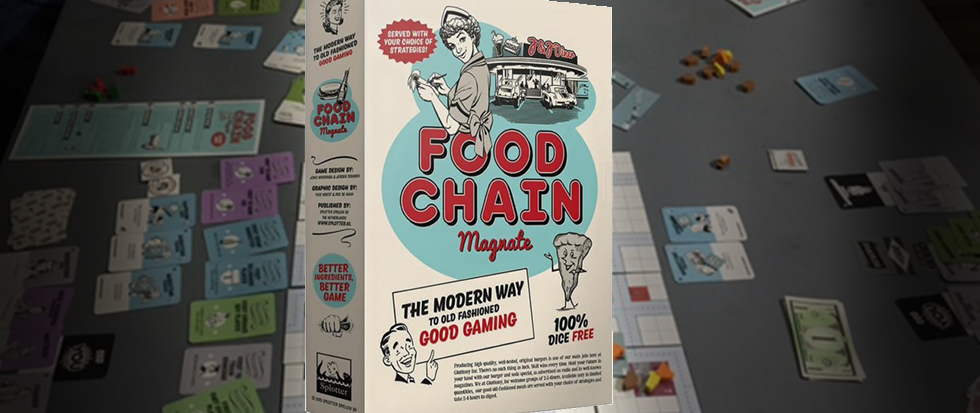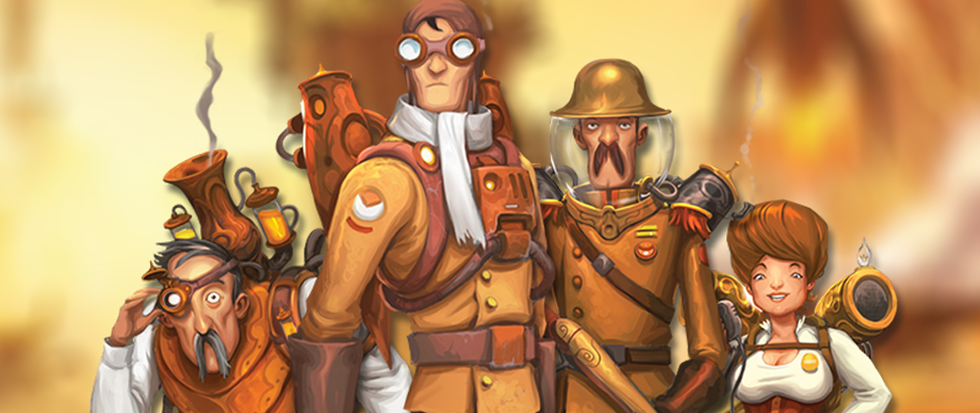
Food Wars
Wargames feature what could be some of the most direct methods of player interaction in games, letting you attack each other’s pieces directly. They give you a bird’s-eye view of the game world as you plan what territories you want to take and who you’ll have to fight you way through to get them. But war is one of the most overused board game themes out there. What if you rethought this kind of macro strategy and transformed it into something else?
Food Chain Magnate reimagines top-down strategy as a more passive-aggressive campaign against your competitor’s prices. You each play as the CEO of a different restaurant chain as you try to carve out the most profit from a town that you share with up to four other franchises. You do this by hiring people to provide food, advertise your menu, and manipulate the real estate market. But while you’re doing this, everyone else is too, and you’re also forced to react to their public-facing strategies.
The game takes place on a series of tiles that make up the town you’ve based yourself in. You get a view of the streets and houses that the town is made up of, which is important, because this determines who will visit your restaurant. People will always go to the closest restaurant that offers the menu they currently crave due to whatever advertising they were fed – unless someone offers it for significantly cheaper. Most of the game is about the push and pull of trying to get people to come to your restaurant just as the others are trying to do the same.

In a way, you can think of competing food chains as a type of war. After all, you’re constantly trying to snipe other people’s turf while keeping your own. Your weapons are your advertising, and your ammunition is the food you cook. But trickiest of all is the manipulation of demand through advertising. You don’t just use it to advertise the food you’re offering, but also to lock other people out of serving a particular house. If you can’t fulfill all of one house’s desires at once, then you can’t serve to them, opening the door for you to take over. But even if you can’t take over, you can block opponents who can’t produce, say, lemonade, taking away the income of those houses who suddenly want lemonade.
It’s all akin to taking territory in wargames, but instead of moving troops around, you’re manipulating neutral, invisible, fickle customers. If someone starts moving in on your turf with lower prices, then you can throw a wrench into the mix in many other different ways. And turf stealing will happen if everyone knows what’s good for them, because ignoring a franchise is downright dangerous thanks to the Luxuries Manager that allows them to charge an extra $10 per unit sold, allowing them to run away with the game.
That’s the thing with Food Chain Magnate: Even if you manage to make a killing somewhere undisturbed in the corner of the board, you always have to stay mindful of opponents ruining your day with one simple advertising campaign or price drop. True, you’re not traveling to opposing restaurants to demolish them with troops, but you always find yourself bumping up against each other regardless as you attempt to eke out just a little more profit than everyone else. There’s no killing, but it turns out running a food chain can be just as cutthroat.





